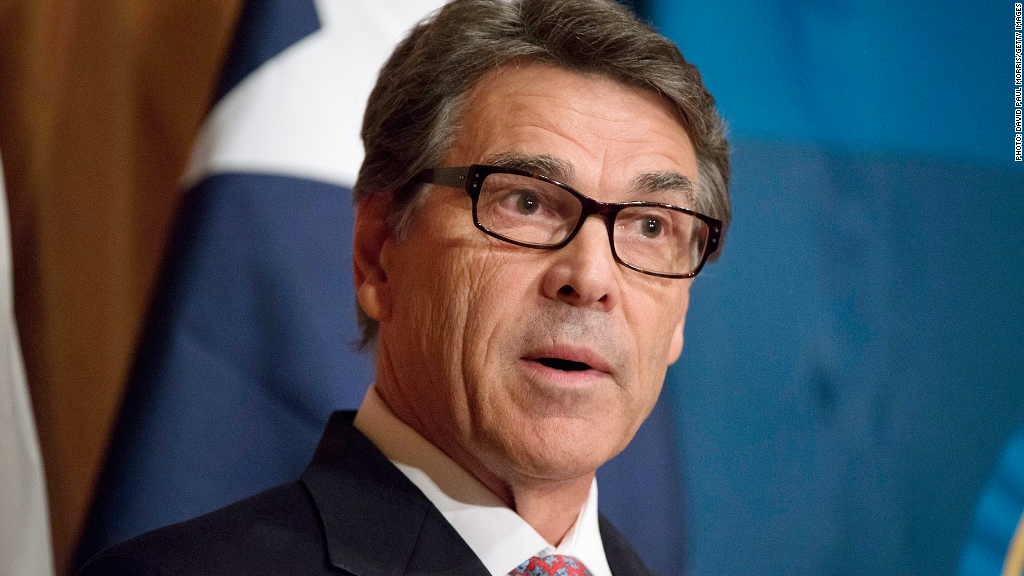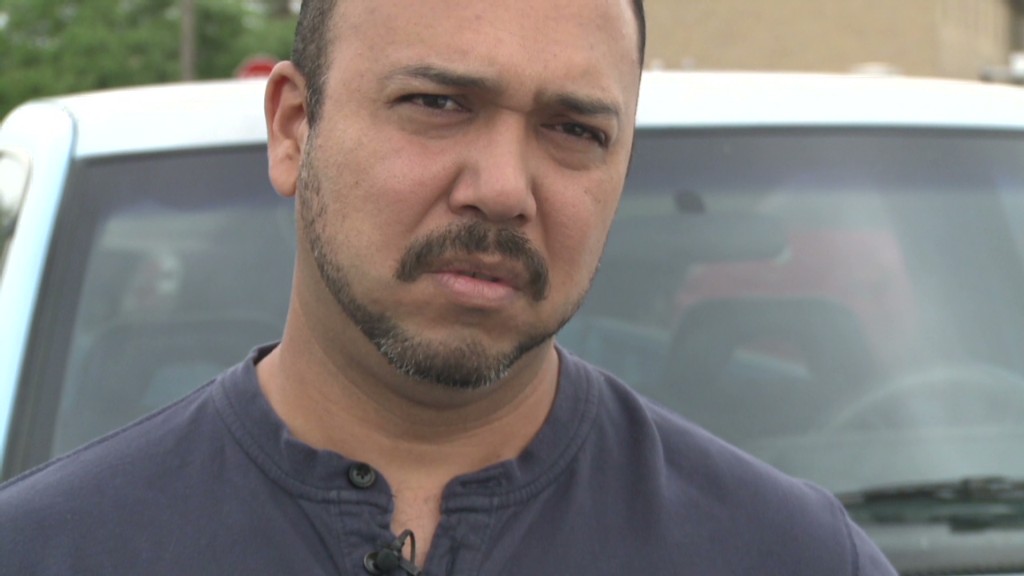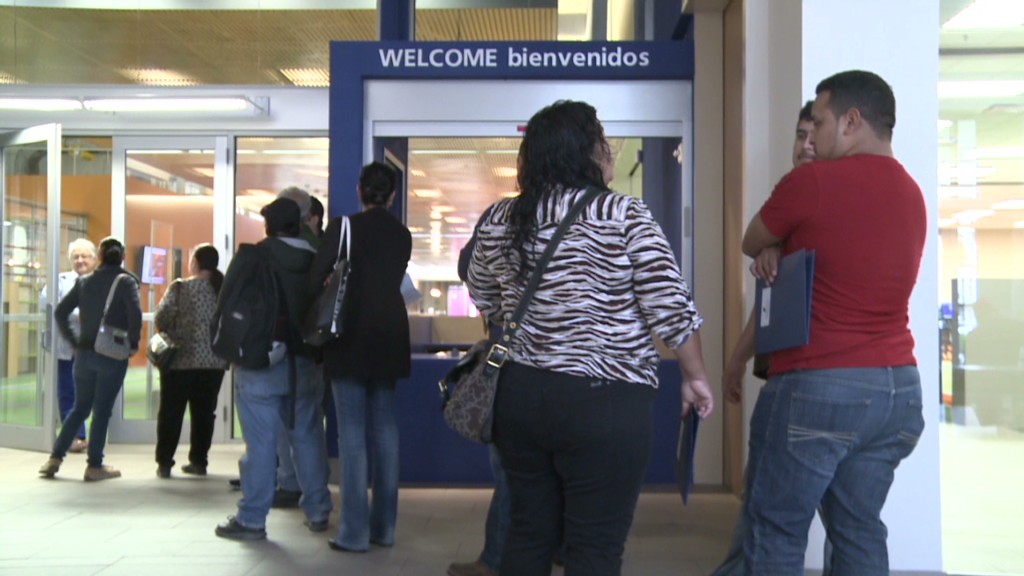
Texas Gov. Rick Perry said this week that income inequality is not a problem in his state.
"We don't grapple with that here," Perry told the Washington Post. "Biblically, the poor are always going to be with us in some form or fashion."
The potential presidential candidate was recently briefed by three experts on the issue, which is expected to play a big role in the 2016 race, the Post reported. Through a spokesperson, Perry told CNNMoney that he believes in creating broad opportunities.
"I'm interested in policies that will expand opportunity for all Americans, which is why the increasing trend of income inequality greatly concerns me," Perry said in a statement.
Related: Over 48 million Americans live in poverty
It's true that the Texas unemployment rate is low, and the state has added lots of jobs during the recovery. But the Lonestar state's record on poverty and inequality is less impressive.

Poverty in Texas: Texas has a poverty rate of rate of 17.5%, compared with the national average of 15.8%. Texas has the 13th highest poverty rate in the United States.
Poverty across the state has changed little over the past two years, with about 4.5 million Texans living below the poverty line, which is $23,283 for a family of four.
But several of its metro areas have seen their poverty levels explode in the last decade or so.
The number of people living in poverty in the Dallas metro area jumped 62% between 2000 and 2012. Houston's poor population climbed by 46% over the same period, according to a report published earlier this year by the Brookings Institution.
McAllen, Tx., has the highest concentration of people living below the poverty line out of any U.S. metro area. El Paso, San Antonio and Houston are in the top 20 metro areas, the report found.

Related: Income inequality is stealth issue in midterm elections
Income Inequality: Texas is one of nine states with the highest levels of income inequality, according to a Census Bureau index. Perry acknowledged in his interview that the wealthiest Texans have earned the most during his tenure.
Meanwhile, the number of minimum wage workers in Texas quadrupled between 2008 and 2013, according to the Labor Department.
Related: America's uber rich are getting younger and younger
The jobs paradox: Texas has created over a million jobs since the recession began. But it has also added a quarter million more part-time workers who want full-time jobs, Labor Department data shows, a jump of 72%.
These so-called involuntary part-time workers are five times more likely to live in poverty than full-time workers. Many involuntary part-timers frequently shift between low-quality jobs and unemployment, according to one study.
